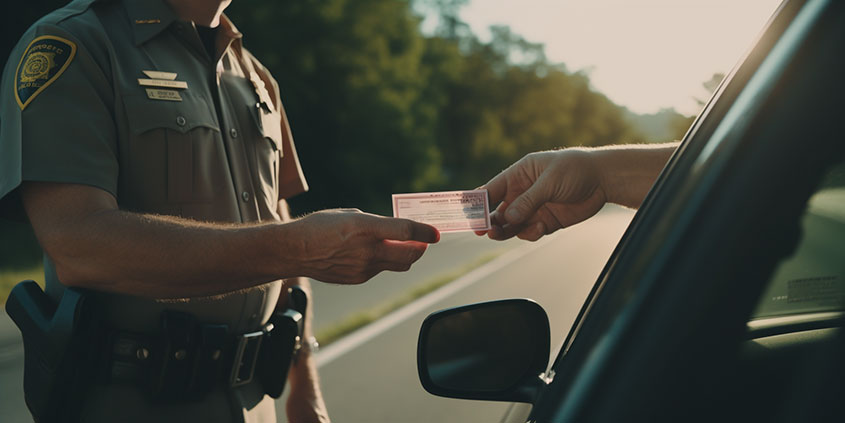Every year, thousands of teenagers in Georgia obtain their driver's licenses, excited to hit the road and enjoy their newfound independence. However, teenage drivers are also among the most vulnerable groups on the road, facing a high risk of accidents, injuries, and fatalities.
According to the Georgia Department of Public Health, motor vehicle crashes are the leading cause of death for Georgia teens aged 15 to 17. This situation highlights the importance of initiatives such as Joshua's Law, which seeks to improve the safety of young drivers through mandatory driver education and supervised driving practice. But what is Joshua's law? Let's find out.
Understanding What Joshua's Law Is
Joshua's Law refers to a Georgia state law that requires all 16 and 17-year-old drivers to complete a driver education course and have a total of 40 hours of supervised driving experience, with six of those hours occurring at night. The law is named after Joshua Brown, a teenager who died in a car accident in 2003.
The law went to effect in 2007 and mandates that teens must be at least 16 years old to obtain a Class D driver's license in Georgia.
Purpose of Joshua's Law
The purpose of Joshua's Law is to improve the safety of young drivers in Georgia by requiring them to complete a formal driver education program and gain a certain amount of supervised driving experience before obtaining their driver's license.
The law aims to help young drivers develop the knowledge, skills, and experience needed to drive safely and responsibly, especially during challenging driving conditions such as nighttime driving.
By reducing the number of accidents involving young drivers, Joshua's Law helps protect the lives of Georgia's residents and visitors, and it also helps reduce the economic costs associated with car accidents, such as medical expenses, property damage, and lost productivity.
DDS-Approved Driver Education Courses
DDS (Department of Driver Services) approves driver education courses designed to help new drivers learn the rules of the road, develop the necessary driving skills, and become safe and responsible drivers.
These courses are typically offered by private driving schools, public high schools, or online providers. They cover many topics, including traffic laws, defensive driving techniques, and safe driving practices.
Requirements for Completion Certificate
To obtain a completion certificate for a DDS-approved driver education course, students must typically attend all classroom sessions, complete all required coursework and assignments, pass all quizzes and exams, and demonstrate their driving skills in a supervised driving environment.
Some courses may also require students to complete a certain number of hours of behind-the-wheel training with a licensed instructor or a parent/guardian.
Major Traffic Violations and Fatal Injuries
Driver education courses also emphasize the importance of avoiding major traffic violations, such as speeding, reckless driving, and driving under the influence of drugs or alcohol. These violations can result in serious injuries or fatalities to drivers, passengers, and pedestrians.
By teaching new drivers to follow traffic laws and make safe and responsible driving decisions, driver education courses can help prevent these tragic outcomes.
Benefits of Driver Education Courses
Driver education courses offer several benefits to new drivers, including:
-
Improved knowledge of traffic laws and safe driving practices
-
Development of necessary driving skills, such as braking, steering, and navigating in traffic
-
Increased confidence behind the wheel
-
Reduced risk of accidents, injuries, and fatalities
-
Preparation for the driver's license exam
-
Potential insurance discounts for completing a driver education course.
Class D License Requirements
In Georgia, a Class D driver's license is the most common, allowing drivers to operate personal passenger vehicles and light trucks with a gross weight of 26,000 pounds or less.
Provisional License and Supervised Driving Hours
Georgia has a graduated driver's license program that includes a provisional license phase for drivers under 18 years old. To obtain a provisional license, the applicant must first obtain a learner's permit, complete a DDS-approved driver education course, and log at least 40 hours of supervised driving, including 6 hours of nighttime driving, with a parent or guardian.
The provisional license restricts the driver from driving between midnight and 5 a.m. and from transporting more than one passenger under 21 years old who is not an immediate family member.
Certificate of Completion and Driving Logs
To meet the driver education course requirement, the applicant must provide a Certificate of Completion from a DDS-approved driver education course provider. In addition, the driving logs that document the 40 hours of supervised driving must also be signed and verified by a parent or guardian.
Driving with Parents, Private Driving Schools, and Wheel Training
In Georgia, 40 hours of supervised driving can be completed with a parent or guardian or a licensed driving instructor from a private driving school. A licensed driving instructor can provide valuable instruction and guidance to the new driver, and they may be able to offer specialized training, such as defensive driving or advanced maneuvering techniques.
Some driving schools also offer wheel training, which is a form of simulated driving training that can help new drivers develop the necessary driving skills in a controlled environment before hitting the road.
What Is Joshua's Law: Summary & Conclusion
Joshua's Law in Georgia requires 16-year-old drivers to complete a driver education course and log 40 hours of supervised driving experience, with six hours at night, to improve the safety of young drivers. Meeting the requirements for a driver's license in Georgia helps new drivers become safe and responsible on the roads, reducing the risk of accidents and injuries.
Learn about the top 5 driving habits that cause accidents and how to break them in our blog.







